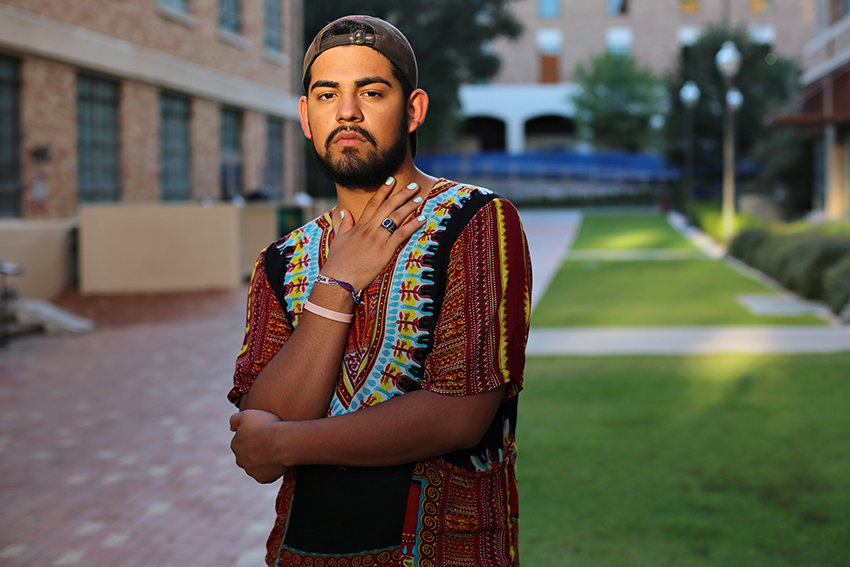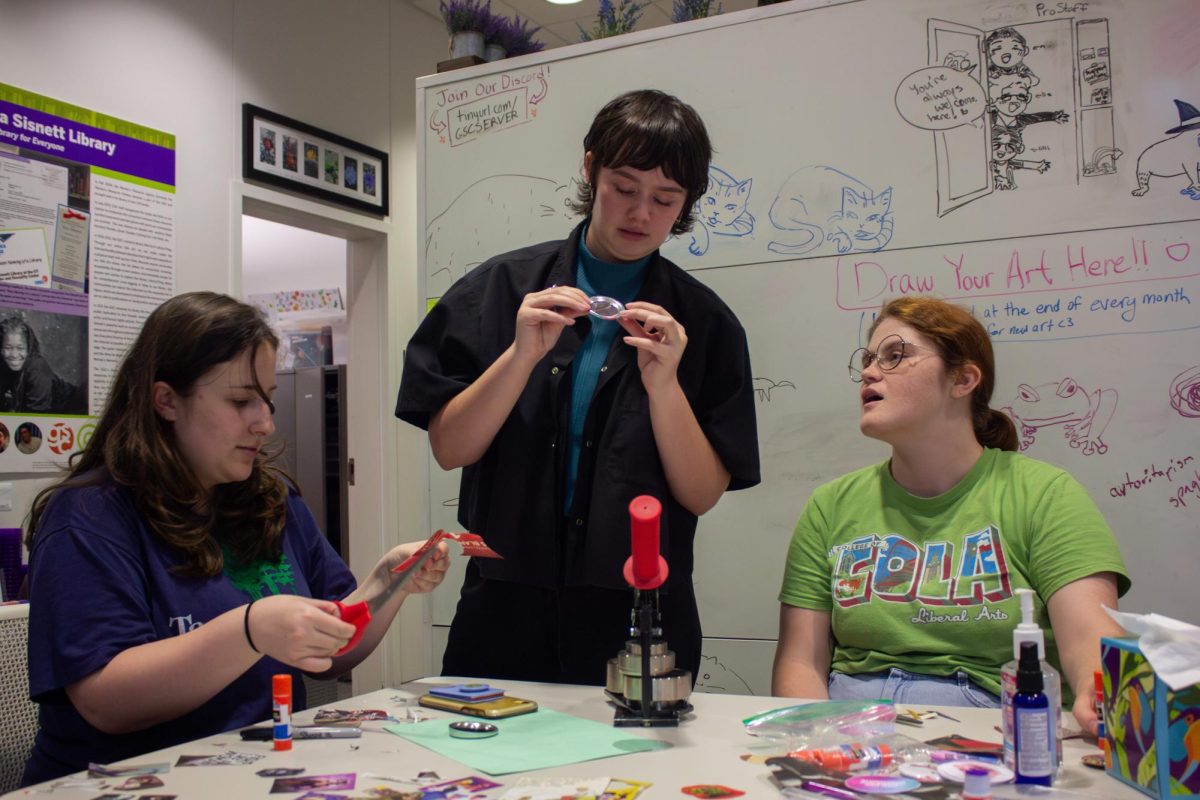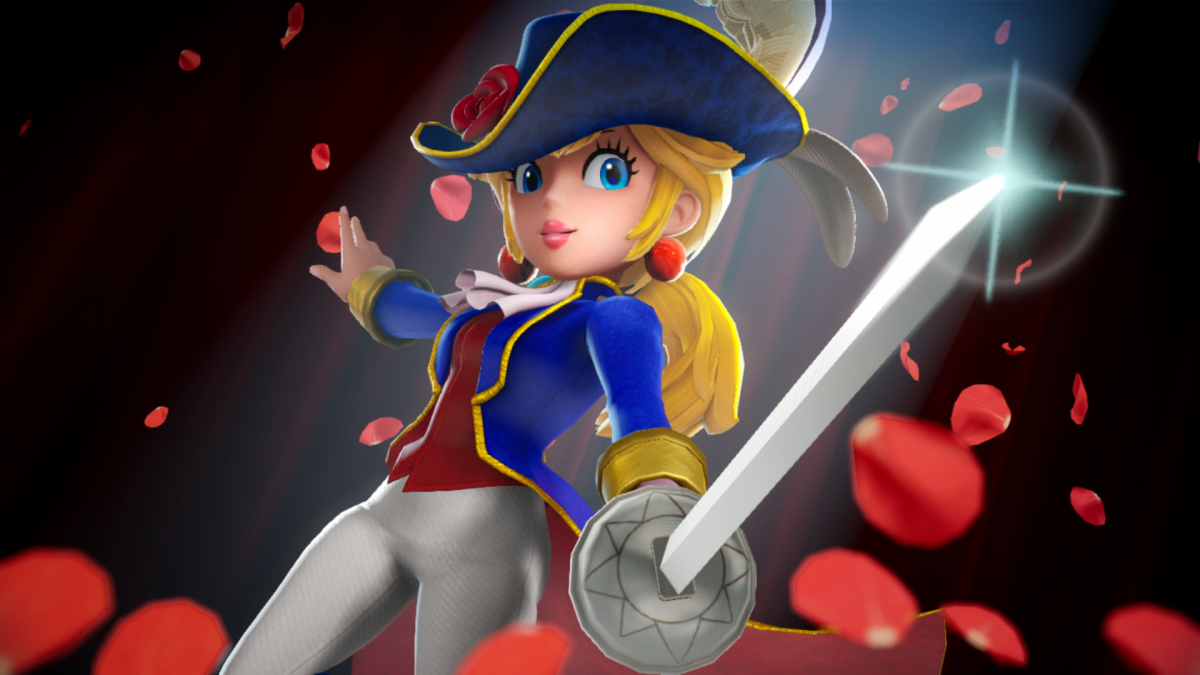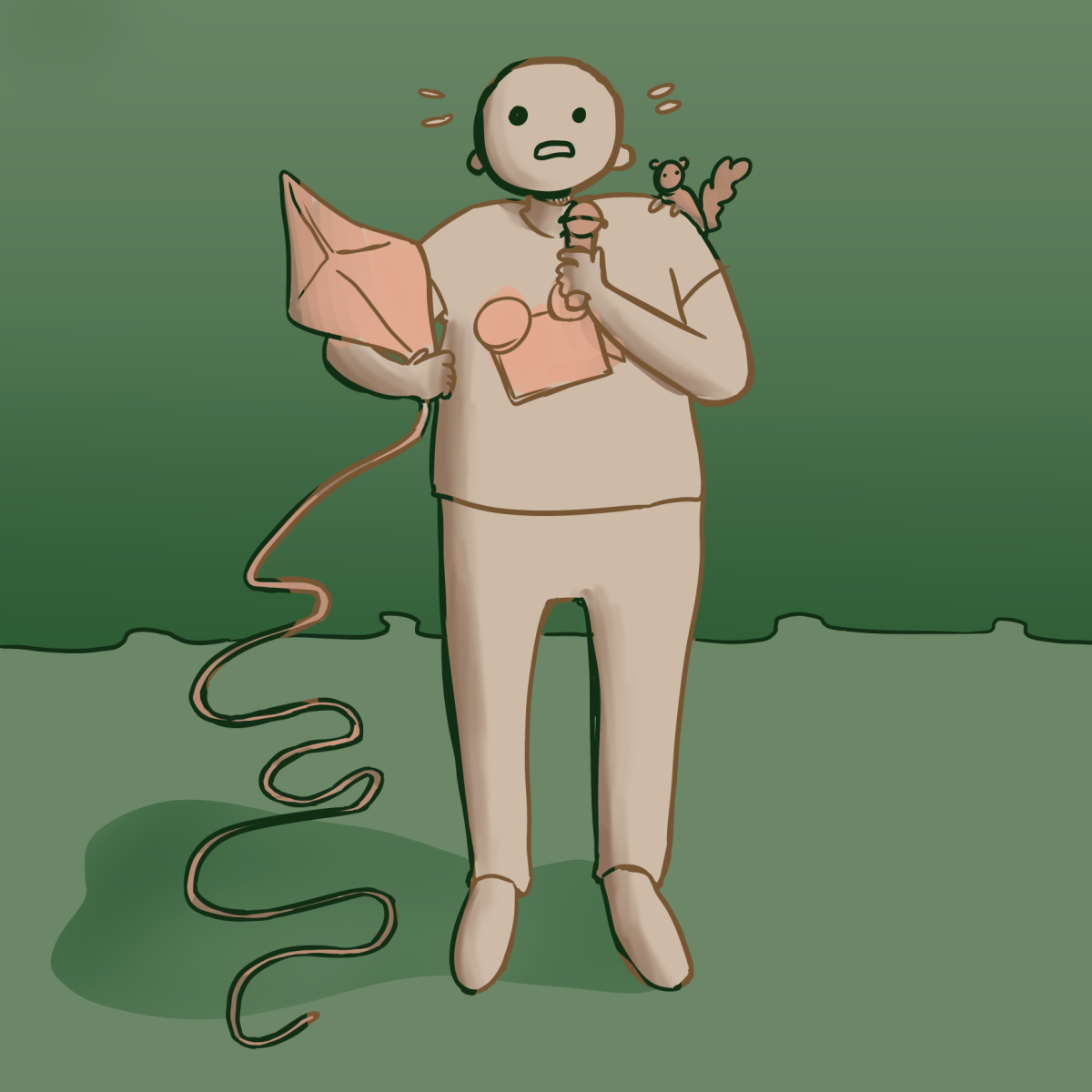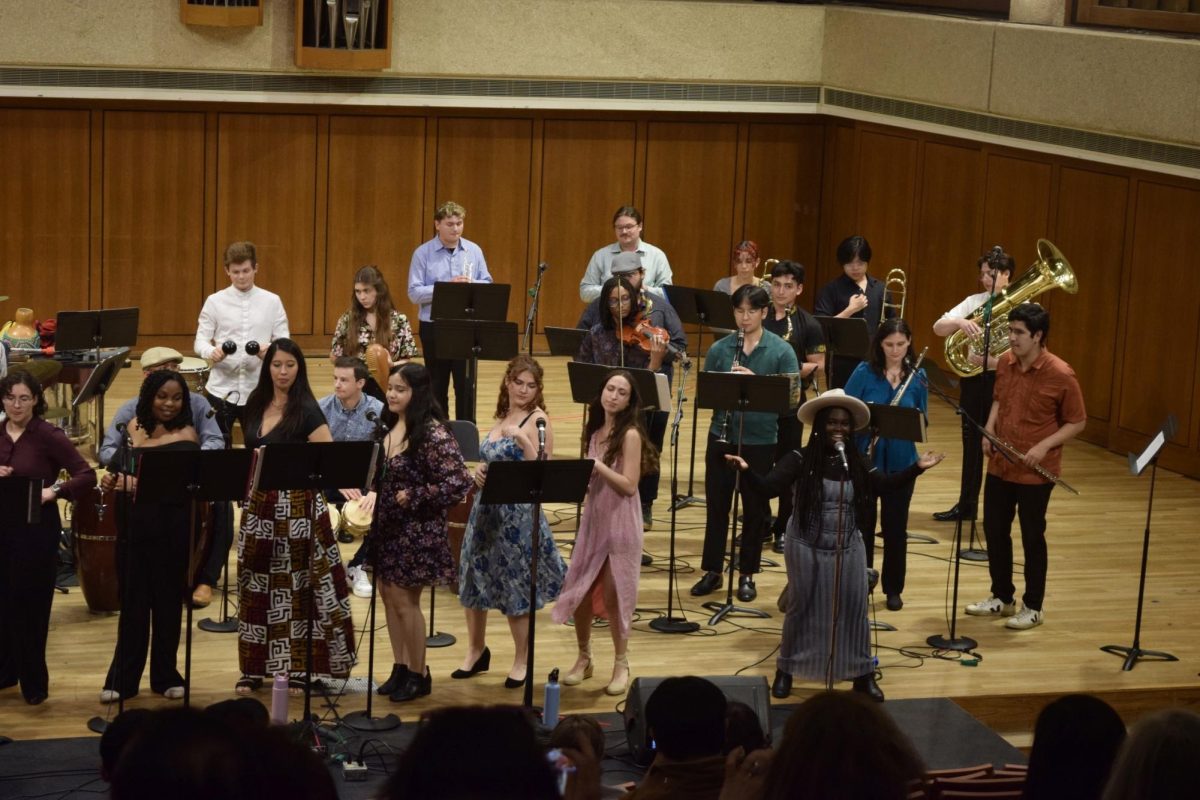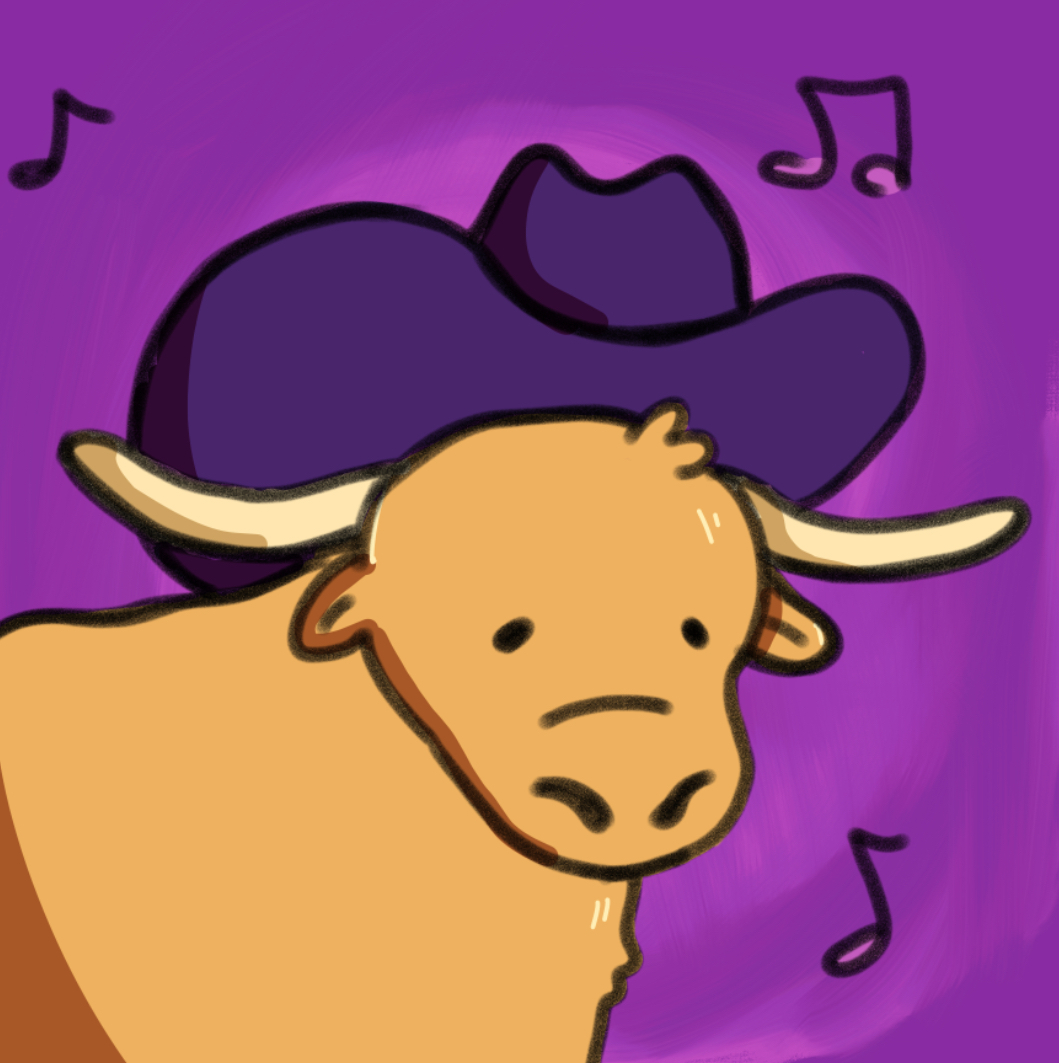Adrian Nañez, theatre and dance freshman, struggled to articulate what homophobia means to him. The sound of wind and car horns filled the space of silence as he searched for the right words.
“Overall, it’s hate,” he finally said. “A form of hate.”
Planned Parenthood defines homophobia as the hatred, fear or discomfort with people of the LGBTQ community. According to a 2018 study conducted by the Gay and Lesbian Alliance Against Defamation (GLAAD), 55 percent of people in the LGBTQ community reported discrimination.
However, homophobia doesn’t stop with people outside the community. Many members deal with internalized homophobia, an often unconscious, self-directed form of homophobic behavior.
Nañez identifies as a gay man. He also said he deals with internalized homophobia everyday.
“It’s a lot of catching yourself in your own head thinking the way (non-LGBTQ people) would think,” Nañez said. “‘Ugh, why do they have to do that? Why can’t they tone the gay down?’ It’s these things you catch in your head and you go, ‘Did I just think that?’”
Before identifying as gay, Nañez, like many others, negatively viewed the LGBTQ community. He said he saw them as foreign, misbehaved and rebellious.
For biology freshman Sarah Craig, growing up in a religious and generally homophobic environment impacted her views of herself and her sexuality. She said gays were not something her family and school would accept.
“The biggest thing that made coming out hard for me was the fact that I was a Christian,” Craig said. “I was so scared that God was going to smite me.”
Outside factors can also contribute to internalized homophobia. Like straight people, the LGBTQ community encounters their own stereotypes in media of what the “perfect gay person” should embody. Biochemistry freshman Nick Fisher said that the ideal gay stereotype has fed his internalized homophobia, because he feels he can’t meet society’s standards.
“I grew up watching ‘Will and Grace,’ and people like Jack or Will that are these buff gay men (are the ideal),” Fisher said. “Will is probably the more idealized version of a gay man. He’s very pretty, he’s pretty masculine, he’s buff, and I think that standard has been set for gays, because it’s reflected that way in television.”
The National Alliance on Mental Illness (NAMI) reports that LGBTQ people are nearly three times more likely to develop mental illnesses. Nañez said a substantial portion of his depression and anxiety stems from his internalized homophobia.
“There’s a huge side of my brain telling me, ‘You’re not good enough, you aren’t ever gonna be good enough, stop,’” Nañez said. “It eats me alive to the point where if I don’t take my meds in the morning, I’m not okay.”
Internalized homophobia is an daunting issue facing the LGBTQ community, but it’s not a hopeless one. It’s not all on the LGBTQ community to solve this problem. Craig said there are ways that people outside the community can help, such as by creating safe spaces for LGBTQ people.
“I think they can help by being conscious of things they’re doing that may seem homophobic even if they aren’t,” Craig said. “They just need to be aware about how their actions and words influence us. We have a hyper-sense. We listen to everything that everyone says to see if it’s a safe environment for us to be in.”
Fisher said that it always helps him when someone, whether they understand what he’s going through or not, listens to him.
“Just love your gay friends,” he said. “If they’re ever struggling with anything, just talk with them.”



